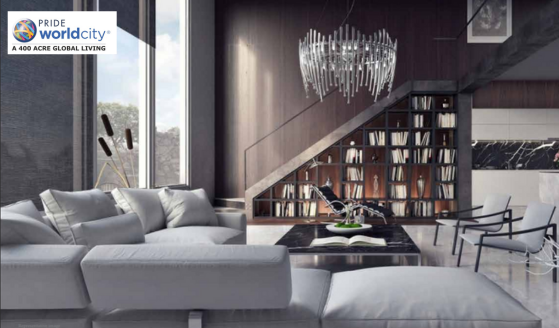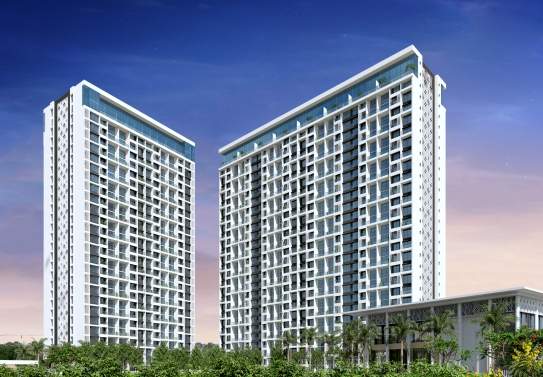
West-Facing Homes - Vastu Insights and Recommendations
Choosing a home is a significant decision, and for many, it goes beyond just bricks and mortar. Vastu Shastra, the ancient Indian system of architecture, emphasises creating a harmonious living space that fosters well-being. While some misconceptions surround house orientation, west-facing homes can be vibrant and prosperous dwellings when aligned with Vastu principles.
Why West Facing Homes Can Shine?
Before diving into Vastu, let’s explore the inherent advantages of west-facing homes:
- Abundant Afternoon Light: Imagine your home bathed in the warm glow of the setting sun. West-facing properties enjoy natural illumination in the later part of the day, creating a warm and inviting atmosphere.
- Positive Energy Flow: According to Vastu, the west direction is associated with Lord Varuna, the god of water. Water symbolises flow, adaptability, and purification, potentially promoting a sense of peace and renewal within the home.
- Ideal for Social Gatherings: The warm evening light sets the stage for enjoyable gatherings on balconies or patios, fostering connections with loved ones.
A Balanced Perspective: Pros and Cons of West-Facing Homes
Pros:
- Natural light and warmth
- Positive energy flow
- Pleasant evenings for socialising
Cons:
- Potential for afternoon heat gain (especially in hot climates)
- Setting sun glare
Vastu Shastra Guidance for West-Facing Homes:
Vastu Shastra goes beyond simply avoiding a particular direction. Here’s how to create a harmonious west-facing home:
- Main Door: Ideally, the main door should be positioned in the north, east, or northeast. However, west-facing main doors can be balanced by incorporating a pooja room or entranceway in the north.
- Living Room: The living room, a space for relaxation and socialising, is ideally placed in the northwest or northeast. This positioning promotes a positive and lively atmosphere.
- Kitchen: The kitchen, representing fire, is best positioned in the southeast for a balanced flow of elements.
- Master Bedroom: The master bedroom can be situated in the southwest corner of the house. However, it’s important to ensure the bed is not placed against the western wall to avoid excessive heat. Light, airy curtains can further mitigate this.
- Colour Scheme: Embrace the element of water with calming colours like white, cream, light blue, or soft green. These hues promote a sense of peace and tranquillity.
Solutions for West-Facing Homes:
- Heat Gain: Strategic use of awnings, blinds, or curtains over west-facing windows can significantly reduce heat gain during the afternoon. Opting for energy-efficient windows can further enhance insulation.
- Glare: Window coverings and strategically placed plants can help manage glare without obstructing the natural light entirely.
Practical Tips for Everyday Harmony:
- Maintain a clean and clutter-free environment: This promotes positive energy flow throughout the house.
- Introduce natural elements: Plants and water features can create a sense of balance and connect you to nature.
- Create a welcoming atmosphere: Use inviting colours, comfortable furniture, and positive affirmations to enhance the overall well-being of your home.
Conclusion
Don’t let misconceptions about west-facing homes hold you back. When designed with intention and aligned with Vastu principles, these homes can be bathed in warm afternoon light, fostering a sense of peace and renewal. Embrace the beauty of the setting sun from your private balcony, unwind in a thoughtfully designed living space, and create a home that reflects your unique personality. Pride World City’s Montreal project offers a stunning selection of 2 BHK luxury flats in Charholi, Pune. These meticulously crafted homes are designed to harness the natural light and positive energy associated with a west-facing orientation. Schedule a visit to Pride World City today and discover the perfect west-facing sanctuary waiting to be called your own and realise your dream of living in a home that not only complements your lifestyle but also fosters well-being – that’s the promise of a Pride World City.
FAQs:
What is the significance of the orientation of a house in Vastu Shastra?
While Vastu Shastra considers various factors, house orientation plays a role in creating a balanced flow of energy within the dwelling. Each direction is associated with different elements and energies. Understanding these principles can help us create a more harmonious living environment.
What are the advantages of living in a west-facing house?
West-facing homes offer abundant natural light in the afternoons, promoting a warm and inviting atmosphere. Additionally, the association with water in Vastu Shastra can symbolise peace and renewal.
How can Vastu Shastra principles be applied to west-facing homes?
Strategic placement of rooms, use of colours, and maintaining a clean environment are some ways to apply Vastu principles to west-facing homes. While some adjustments might be needed for the main door or master bedroom placement, a harmonious living space can still be achieved.
Are there any specific remedies or adjustments recommended for west-facing houses in Vastu Shastra?
For west-facing homes, Vastu might recommend placing a pooja room or entranceway in the north to balance a west-facing main door. Light, airy curtains on the west-facing windows can help manage heat and glare. Consulting a Vastu expert


















